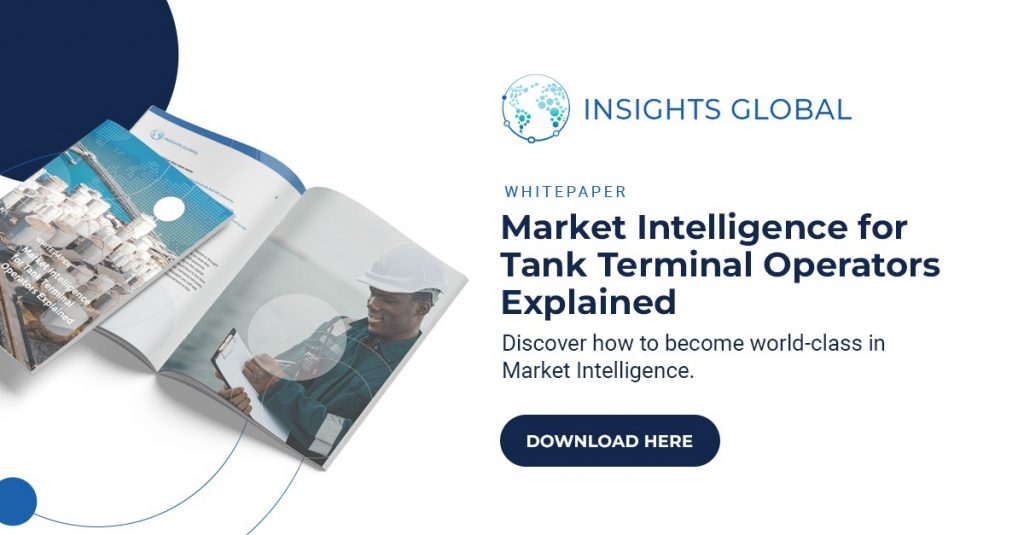Gut feeling or a strategy aligned with market intelligence?
We don’t deny it: some entrepreneurs keep getting lucky just basing their decisions on gut feeling. At the same time we claim that even these entrepreneurs and their companies would fare even better if they had ongoing smart and structured intelligence gathering about all aspects of their market. Let’s take a look why market intelligence is an equally vital support activity within a company just as IT, human resource management or accounting are.
Tank terminals are capital goods. Strategic decisions in the terminal business often result in investments worth millions of dollars. And these investments determine to a large extent the capabilities of a terminal for years to come. So obviously any reduction of long-term investment risk is welcome. Market intelligence, the systematic gathering and analysis of information about all things concerning your current and future business, is the way to do this.
The important of current awareness before strategy
In a first blog on current awareness we have explained that a company simply must have sufficient understanding of what’s currently happening in your industry. What are clients looking for? What are competitors doing? Which tech trends influence the market? How is the pricing of services changing? Which mergers and acquisitions are taking place? Is there news on the regulation front in any of the relevant geographic areas? Are there important changes in the political landscape?
The current awareness can be structured using a PEST-factor (macro-level: political, economic, societal, technological) analysis, competitive environment (industry-level: customers and competitors) analysis and SWOT (segment-level: strengths, weaknesses, opportunities and threats) analysis.
The next stage should offer a clear view on various realistic future scenarios for industry and market developments. Most often there is one strong trend dominating the market, but it would be foolish to always just follow the pack jumping on such a new trend. If you come in early it could prove demand is not yet as predicted. If you come in late you can’t win either.
Market intelligence allows a business to stand on its own two feet and make specific decisions independently. Better decisions. Quicker decisions. Better timing. The right partners. That’s what makes the difference!
The consequences of strategic decisions and what to do with them
A helpful way to analyse consequences of strategic decisions is to always consciously run through three scenarios:
- worst case
- most likely
- best case
If your market intelligence is capable of providing this kind of “three-stage” realistic prognosis for each possible expansion or change of a terminal operation, then it is also likely that the management will be able to recalibrate the long-term corporate strategy and pick the best choices. The fact that various levels of management are involved in the information gathering, also ensures that strategic decisions are well supported by the whole organisation.
In the end what counts is to move away from the intuitive and short-term approach towards a systematically organized long-term form of Market Intelligence (MI) preferably with concrete roles for key staff members and with a proper embedding in the company culture.
The handbook of Market Intelligence (2009) offers a good example of world-class market intelligence as it relates to strategy:
“We are future-oriented in our approach and frequently use scenario analysis in combination with forecasting as methods to understand the future dynamics of our industry. One example is that we have a project focusing on as far as the year 2050. We have an intelligence network in place and are producing deliverables that have been tied into our strategic and operational business processes.”
In the end, world-class companies have proven that ongoing smart and structured intelligence gathering about all aspects of their market will enhance profitability and reduce risk. In the highly fragmented tank terminal business, servicing an ever-changing liquid bulk market, it is not possible to survive without a clear strategy. Market Intelligence (MI) ensures that this strategy is well founded and recalibrated frequently. In this way it is a vital internal support function.
Whitepaper: Market Intelligence for Tank Terminal Operators Explained

